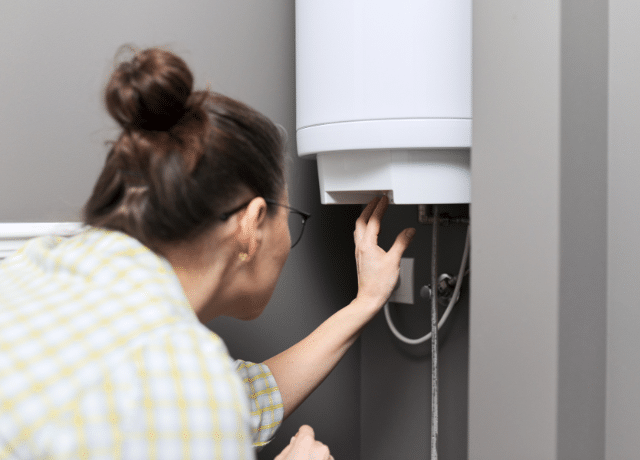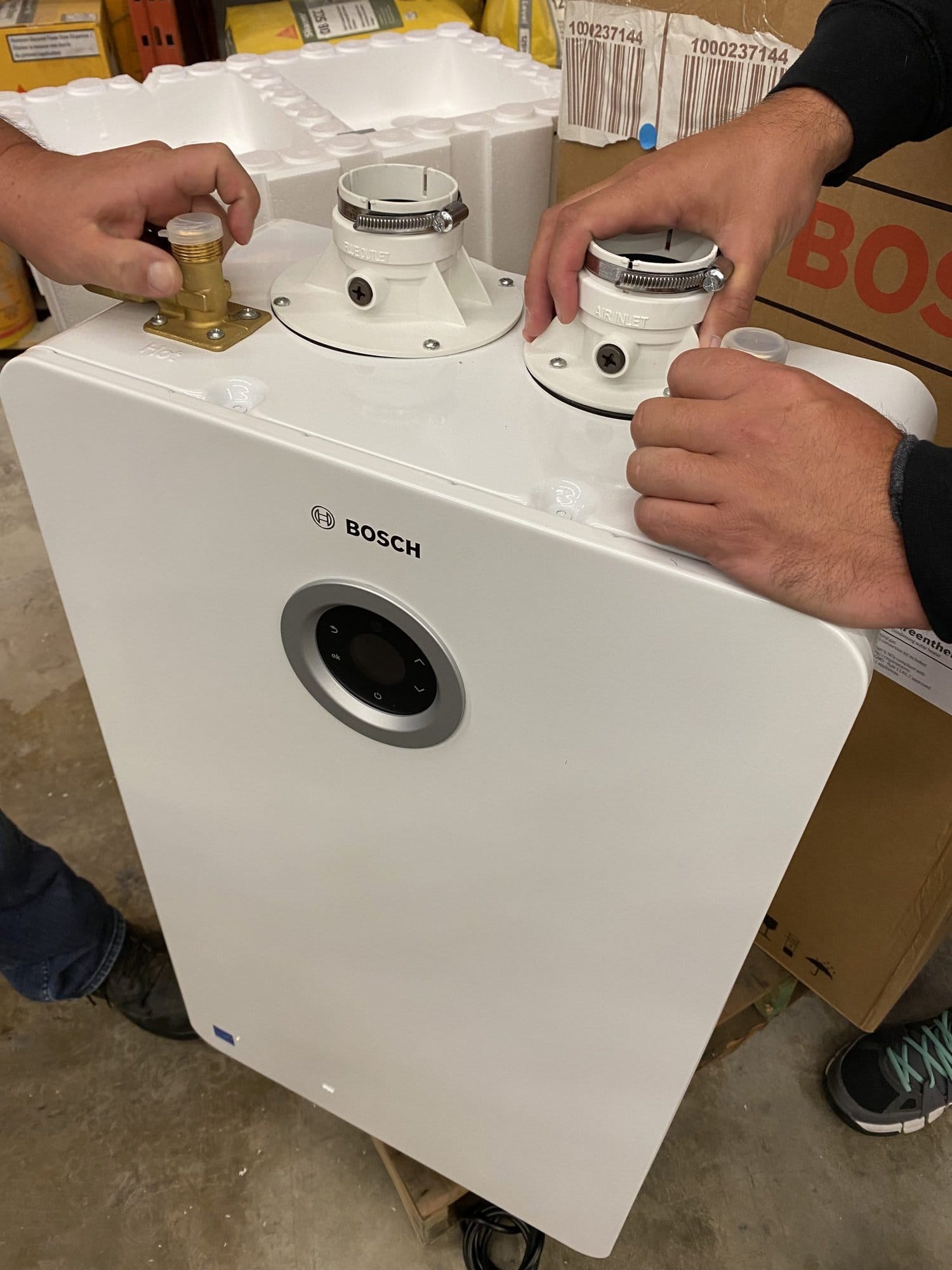How do you really feel on the subject of 5 Benefits of Tankless Water Heaters?

In a globe where convenience and performance preponderate, it's no surprise that homeowners are frequently in search of smarter methods to handle their home's power usage and convenience. One technology that has actually gradually acquired popularity is the tankless hot water heater. However what exactly makes these systems stand out from the traditional tank-based designs most of us grew up with? Let's dive in and discover the advantages of tankless water heaters, helping you determine if it's time to make the switch in your house.
Introduction
Image this: you step into the shower after a lengthy day, expecting a comforting cascade of warm water, only to be welcomed by icy beads due to the fact that the last person used it all up. Noise acquainted? Standard water heaters store a fixed amount of hot water, suggesting you go to the grace of that storage tank's supply. Tankless systems, on the other hand, heat water on demand. Say goodbye to going out mid-shower, no more wrestling with timetables simply to make sure hot water is available.
Understanding Tankless Hot Water Heater
What Are Tankless Hot Water Heater?
Tankless water heaters, occasionally referred to as on-demand or immediate water heaters, give hot water just as it's required. Instead of saving gallons of pre-heated water, these systems kick into activity the minute you activate the faucet. Water passes through a heat exchanger, warming up in real-time, indicating you get an uninterrupted circulation of hot water without the demand for a big container sitting lazily by.
How Do They Vary from Traditional Solutions?
Traditional heaters hold a tank of warm water, using energy to maintain that tank at a consistent temperature. Tankless systems get rid of the standing supply, cutting down on wasted power and the cumbersome footprint of a big cyndrical tube. Essentially, you're upgrading from a "stockpile" attitude to a "made-to-order" approach.
Typical Kinds Of Tankless Systems
Tankless hot water heater normally can be found in two varieties: gas and electric. Gas versions often tend to supply greater circulation prices, suitable for larger houses, while electrical designs commonly serve smaller sized homes and are typically simpler to install. In addition, some systems are made for point-of-use (offering one fixture) while others can take care of the entire home's warm water demands.
Secret Advantages of Tankless Water Heaters
1. Unlimited Warm Water Supply
Ever before had to schedule showers so every person gets their reasonable share of hot water? With tankless, that ends up being a thing of the past. As long as the heating system's flow ability isn't exceeded, you can take back-to-back showers without becoming a popsicle.
2. Power Effectiveness and Price Savings
No more heating up a giant storage tank's worth of water and keeping it toasty all the time. Tankless heating units decrease standby power losses, which can decrease energy costs. While the first cost might be higher, the long-lasting financial savings commonly justify the financial investment.
3. Space-Saving Design
If your home is short on storage space, removing the bulky storage tank maximizes important room. Tankless devices are small and can commonly be installed on wall surfaces, hidden in corners, or set up in tight energy closets without monopolizing the whole room.
4. Longer Life-span
A well-kept tankless hot water heater can outlive its tank-based cousin. Standard containers might last 10-15 years, while tankless designs can keep downing along for two decades or more, making them a solid financial investment with time.
5. Improved Water Quality
Saving water in a container can in some cases lead to debris accumulation or a slightly "off" taste. With tankless systems, fresh water is heated up instantly, lowering the possibilities of sediment build-up and potentially supplying cleaner-tasting water.
Factors to consider Prior To Changing
Though the benefits are engaging, it's smart to think about a few factors prior to completely dedicating.
Initial Financial Investment Expenses
Tankless heaters generally feature a greater in advance price tag. Between the unit itself and possible installation modifications, the first expense may give you sticker label shock. However keep in mind to view it as a lasting financial investment.
Installation Requirements
Relying on your home's facilities, you might require additional electric capacity or gas line upgrades. Ensure you understand the setup requirements and talk to a professional to prevent surprises.
Reviewing Your Home's Water Usage Patterns
If your home concurrently utilizes multiple components with high hot water demand, see to it the device's circulation price meets your requirements. Understanding your use patterns aids you choose the ideal size and type of tankless heater.
Upkeep and Treatment Tips
Tankless systems are fairly low upkeep, however they aren't set-it-and-forget-it home appliances.
Routine Cleaning and Descaling
Tough water minerals can develop in the heat exchanger, influencing effectiveness. Routine descaling (commonly recommended each year) keeps the unit performing at peak performance.
Annual Professional Evaluations
A yearly checkup from a professional ensures minor issues are captured early. They'll assess the device's performance, try to find leaks, and assist keep optimum effectiveness.
Ensuring Appropriate Ventilation
For gas designs, correct ventilation is necessary to securely remove exhaust gases. Ensure airing vent systems are tidy and appropriately installed to stop any possible safety and security hazards.
Contrasting Different Brands and Models
Not all tankless water heaters are created equal.
Investigating Dependable Producers
Try to find trustworthy brand names with a history of producing quality systems. A trustworthy supplier often offers much better consumer assistance and longer guarantees.
Checking Out Reviews and User Comments
User testimonials and comments from neighbors or pals who have gone tankless can provide valuable understandings. Often, real-life experiences can be more informing than advertising and marketing brochures.
Installation: Do It Yourself or Expert?
While some homeowners cherish dealing with projects themselves, tankless installation may not be the best time to burst out the toolbox.
Pros and Cons of Do It Yourself Installation
A do it yourself install can save cash, however it features dangers. Wrong installment can lead to ineffectiveness or safety and security worries. If you're handy and have experience, it could be possible-- yet wage care.
When to Call an Expert Plumbing Professional
For a lot of, calling a professional guarantees every little thing's done properly. A professional plumbing technician comprehends regional codes, sizing demands, and venting criteria, decreasing the threat of incidents.
Optimizing Efficiency
You've purchased a tankless device-- now maximize its effectiveness.
Optimal Temperature Level Settings
The majority of people set their devices between 120-140 F. Changing the temperature can enhance comfort and cost savings. Experiment to discover a wonderful area that doesn't throw away power.
Coupling With Low-Flow Fixtures
Intend to extend your system's capabilities? Think about installing low-flow showerheads and taps. They decrease water usage, permitting your tankless system to provide a stable stream of warm water without straining.
Environmental Influence
Tankless hot water heater align with greener living objectives.
Reduced Carbon Impact
By using less power and just heating water as required, tankless systems can reduce your home's carbon impact, reducing your environmental effect.
Preserving Natural Resources
Much less power consumption and less squandered warm water equate right into fewer natural deposits being made use of, an environmental win-win.
Who Benefits Many from Tankless Heating units?
The elegance of tankless heating units is that they can match a range of households.
Big Households vs. Single Owners
Big family members could like the countless warm water supply, while solitary occupants value the power cost savings from not heating an entire tank for simply someone's early morning shower.
House Owners with Minimal Area
If your home is short on square footage, shedding the large tank liberates area for other essentials-- or possibly just extra elbow room.
Eco-Conscious Consumers
Going tankless aligns with eco-friendly values, guaranteeing you're not squandering power or resources.
Future Fads in Tankless Water Heaters
The globe of home devices is ever-evolving, and tankless hot water heater are no exception.
Smart Home Combination
Imagine readjusting your water heater's temperature through an application or obtaining upkeep informs on your phone. As wise home technology advancements, we'll see even more connectivity and comfort.
Developments in Modern technology
R&D is regularly boosting warmth exchangers, making devices more efficient and durable. Future models could be also quieter, a lot more small, and much better fit for varying environments.
Conclusion
Selecting a tankless water heater is greater than simply updating your home's warm water system; it's purchasing lasting convenience, energy performance, and a greener way of life. By considering your household's water usage, bearing in mind setup requirements, and dedicating to normal maintenance, you can take pleasure in a stable stream of warm water without the baggage of a cumbersome tank. As innovation evolves, you can eagerly anticipate even smarter, much more effective tankless remedies that not only make your life simpler however also profit the planet.
Why You Should Consider a Tankless Water Heater for Your Home
Energy Efficiency and Cost Savings
Tankless water heaters, also known as on-demand water heaters, heat water only when needed. This means they don't waste energy keeping a tank of water hot constantly. This efficiency translates into substantial cost savings on your monthly energy bills.
Endless Hot Water Supply
One of the significant advantages of tankless water heaters is their ability to provide a continuous supply of hot water. Traditional tank water heaters have a limited capacity and can run out of hot water, especially during peak usage times. In contrast, tankless water heaters can provide an endless stream of hot water, making them ideal for larger families or homes with high water usage.
Space-Saving Design
Tankless water heaters are compact and take up significantly less space compared to traditional tank heaters. They can be installed on walls, under cabinets, or even outside, freeing up valuable space in your home. This makes tankless water heaters a great option for smaller homes or properties with limited space for a traditional water heater.
Longer Lifespan and Lower Maintenance
Tankless water heaters typically have a longer lifespan compared to traditional tank heaters. They can last up to 20 years or more with proper maintenance. Additionally, tankless systems are designed with replaceable parts, which can extend their lifespan further and reduce long-term maintenance costs.
Environmentally Friendly
Reducing energy consumption not only saves you money but also benefits the environment. Tankless water heaters contribute to a smaller carbon footprint by using less energy to heat water. Their energy efficiency and ability to minimize standby heat loss make them an eco-friendly choice for environmentally conscious homeowners.
Customized Temperature Control
Tankless water heaters offer precise temperature control, allowing you to set the desired temperature to meet your specific needs. This level of customization ensures you always have water at the perfect temperature for your comfort and usage requirements.
https://beantownservices.com/blog/consider-tankless-water-heater-for-your-home

As a keen reader on Six Benefits of a Tankless Hot Water Heater, I assumed sharing that excerpt was smart. I beg you take a moment to distribute this write-up if you liked it. Thanks so much for taking the time to read it.
Call Today